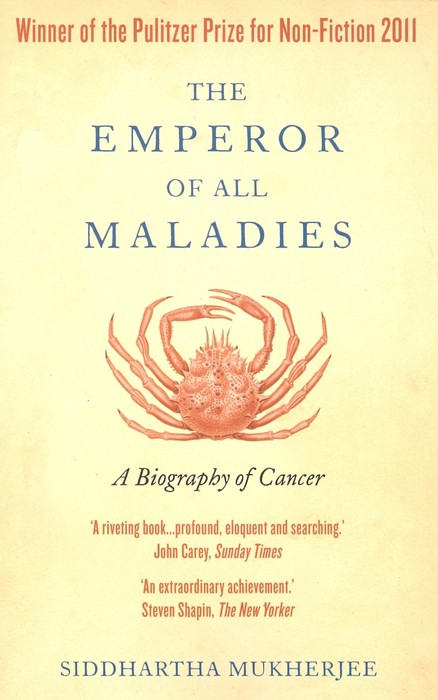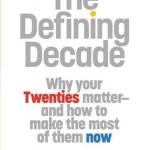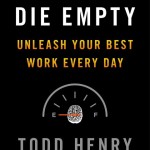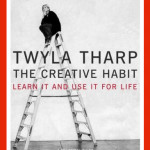“History repeats, but science reverberates.”
The Emperor of All Maladies is a magnificent, profoundly humane “biography” of cancer—from its first documented appearances thousands of years ago through the epic battles in the twentieth century to cure, control, and conquer it to a radical new understanding of its essence.
Physician, researcher, and award-winning science writer, Siddhartha Mukherjee examines cancer with a cellular biologist’s precision, a historian’s perspective, and a biographer’s passion. The result is an astonishingly lucid and eloquent chronicle of a disease humans have lived with—and perished from—for more than five thousand years.
The story of cancer is a story of human ingenuity, resilience, and perseverance, but also of hubris, paternalism, and misperception. Mukherjee recounts centuries of discoveries, setbacks, victories, and deaths, told through the eyes of his predecessors and peers, training their wits against an infinitely resourceful adversary that, just three decades ago, was thought to be easily vanquished in an all-out “war against cancer.”
The book reads like a literary thriller with cancer as the protagonist. From the Persian Queen Atossa, whose Greek slave cut off her malignant breast, to the nineteenth-century recipients of primitive radiation and chemotherapy to Mukherjee’s own leukemia patient, Carla, The Emperor of All Maladies is about the people who have soldiered through fiercely demanding regimens in order to survive—and to increase our understanding of this iconic disease.
Riveting, urgent, and surprising, The Emperor of All Maladies provides a fascinating glimpse into the future of cancer treatments. It is an illuminating book that provides hope and clarity to those seeking to demystify cancer. [From: Goodreads.com]
“The art of medicine is long, Hippocrates tells us, “and life is short; opportunity fleeting; the experiment perilous; judgment flawed.”
The book weaves together Mukherjee’s experiences as a hematology/oncology fellow at Massachusetts General Hospital as well as the history of cancer treatment and research. Mukherjee gives the history of cancer from its first identification 4,600 years ago by the Egyptian physician Imhotep. The Greeks had no understanding of cells, but they were familiar with hydraulics, so they used hydraulic metaphors, of humors, which were fluids whose proper balance, they believed, produced health and sickness. According to the book, cancer existed in silence in history until 440 BC, where the Greek historian Herodotus records the story of Atusa the queen of Persia and the daughter of Cyrus, who noticed a lump in her breast. The tumor was excised by her Greek slave named Demasitis, where the procedure is believed to be successful at least temporarily.
In the 19th century, surgical approaches were developed to deal with tumors. William Halsted developed an aggressive, disfiguring breast surgery as a strategy for removing not only existing cancer cells but also places to which they might have spread.
Leukemia, a cancer of blood cells, was first observed by Rudolph Virchow, and Franz Ernst Christian Neumann localized the pathology to the bone marrow. Leukemia cells are dependent on the enzyme dihydrofolate reductase. Sidney Farber used molecules developed by Yellapragada Subbarow to block the enzyme and destroy the leukemia cells, producing a temporary remission in the disease.
The book proceeds right on through to the latest research and therapies.
According to Mukherjee, the book was a response to the demand of a patient: “I’m willing to go on fighting, but I need to know what it is that I’m battling.” Mukherjee states that two of his influences for the book were Randy Shilts’ And the Band Played On and Richard Rhodes’ The Making of the Atomic Bomb, but the defining moment for him was “when he conceived of his book as a biography”.
It was described, by the magazine Time, as one of the 100 most influential books of the last 100 years, and by the New York Times magazine as among the 100 best works of non-fiction. [From: Wikipedia.com]
“Cancer was not disorganized chromosomal chaos. It was organized chromosomal chaos”
…and a tip of the hat to Siddhartha Mukherjee’s November release, a 2010 Discover Great New Writers award finalist. This biography of cancer has received sterling reviews: “Rarely have the science and poetry of illness been so elegantly braided together as they are in this erudite, engrossing, kind book.” [From: Barnesandnoble.com]
“Cancer’s life is a recapitulation of the body’s life, its existence a pathological mirror of our own.”
Mukherjee’s debut book is a sweeping epic of obsession, brilliant researchers, dramatic new treatments, euphoric success and tragic failure, and the relentless battle by scientists and patients alike against an equally relentless, wily, and elusive enemy. From the first chemotherapy developed from textile dyes to the possibilities emerging from our understanding of cancer cells, Mukherjee shapes a massive amount of history into a coherent story with a roller-coaster trajectory: the discovery of a new treatment–surgery, radiation, chemotherapy–followed by the notion that if a little is good, more must be better, ending in disfiguring radical mastectomy and multidrug chemo so toxic the treatment ended up being almost worse than the disease. The first part of the book is driven by the obsession of Sidney Farber and philanthropist Mary Lasker to find a unitary cure for all cancers. (Farber developed the first successful chemotherapy for childhood leukemia.) The last and most exciting part is driven by the race of brilliant, maverick scientists to understand how cells become cancerous. Each new discovery was small, but as Mukherjee, a Columbia professor of medicine, writes, “Incremental advances can add up to trans-formative changes.” Mukherjee’s formidable intelligence and compassion produce a stunning account of the effort to disrobe the “emperor of maladies.” [From: Publishersweekly.com]
“One swallow is a coincidence, but two swallows make summer.”
If you like this story, CLICK HERE to join the tribe of success-minded people just like you. You will love our weekly quick summaries of top stories, talks, books, movies, music and more with handy downloadable guides, cheat sheets, cliffs notes and quote books.
And, you can opt-out at any time – no strings, promise… CLICK HERE


















